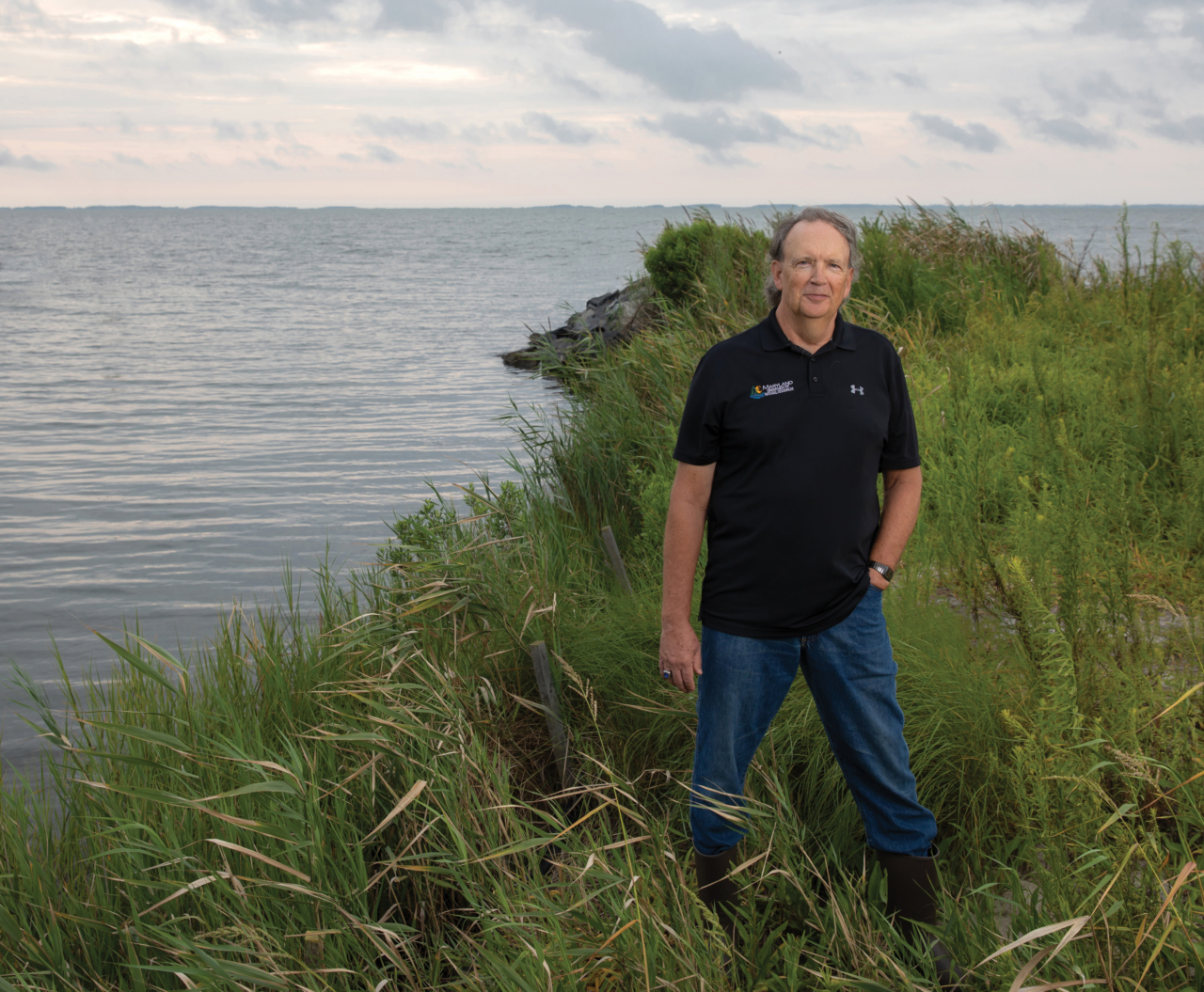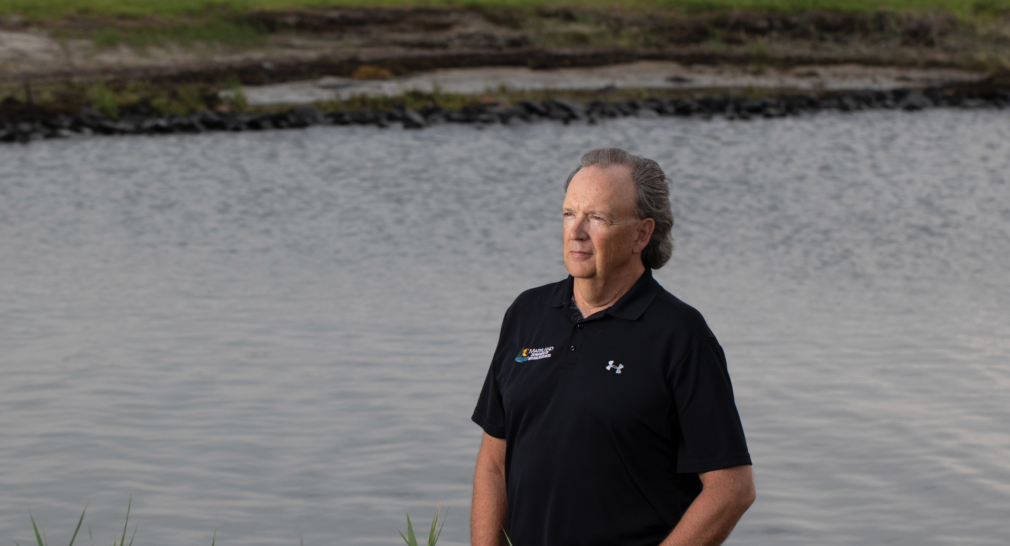After a high profile career in corporate America and government, Bill Anderson is on a quest to affect real change for the Shore
Written by Joe Willey
Photography by Jill Jasuta
Influenced by the wave-lapped shoreline of Ocean City, William C. (Bill) Anderson’s lengthy high profile career has reflected his concern for energy and ecology. The Maryland coastline exerted such a pull that even after working and living in a litany of exotic locations, his family wanted the Eastern Shore as the permanent backdrop of their home. And now, he has begun a new project highlighting the need for critical thinking and American ingenuity in addressing climate change.
Anderson grew up in Baltimore County, Maryland, and spent summers in Ocean City. The natural beauty he noticed during those early summers would shape his ideas for the rest of his life. He attended Washington College in Chestertown, earning a B.A. in History, then attended Syracuse University, where he received his J.D. (Juris Doctorate). He credits law school with doing more than sharpening his business and leadership skills. Law school provided something else, a framework for decision-making based on logic and careful consideration of ideas.
He always wanted to be a lawyer but was interested in business, not the courtroom, so he enrolled in the University of Miami, Herbert Business School. While there, Anderson was offered a position at General Electric, then headed by legendary chairman and CEO Jack Welch. Over time, he mirrored the fabled executive’s practices of successful leadership.
After serving as the Assistant Secretary for Installations, Environment, and Logistics of the Air Force, one of the top civilian leaders in that branch of the U.S. Military, he was named Assistant Secretary—Aquatic Resources for the Maryland Department of Natural Resources. He applied a valuable principle learned early in his career — surround yourself with subject matter experts and remove roadblocks so they can thrive.

OPEN FOR DISCUSSION
Bill Anderson’s impressive career saw him reach the pinnacles of success at General Electric, the Air Force and Maryland Department of Natural Resources. His latest work challenges private and public sectors to examine current policies on climate change.
Anderson’s newest project — a Substack Newsletter titled The Annoying Reality by Bill Anderson — uses his hard-won expertise to ask questions about climate change policy. “We should be doing everything we can to preserve the planet,” Bill says with conviction. Few would disagree that the wanton destruction of natural resources is unwise.
But Anderson is not wringing his hands in confusion. Instead, he is using his newsletter to call for consistency in a culture of hypocrisy.
He believes global leaders are making frantic decisions to combat climate change while acting in opposition to those decisions. The choices are causing poly-crises that, compounded over time, lead to unimaginable problems. He asks questions — insightful ones — about the vagaries of energy management policy. He does not want an echo chamber where sycophants reactively appreciate his ideas; this is an invitation to disagree — even vehemently with his position.
Anderson is not creating an apocalyptic energy-wasted landscape. He is offering solutions that will lessen the exploitation of resources like lithium and cobalt and stop what amounts to the recolonization of the African continent by global business enterprises. He looks at energy holistically and begins with the end in mind, opining that creative energy solutions must play a profound role in sustainable energy for the planet.
“We should be doing everything we can to preserve the planet,” Bill says with conviction. Few would disagree that the wanton destruction of natural resources is unwise.
To him, sustainable energy is an economic issue, a national security issue and an environmental issue — an example of a poly crises he writes about. He unashamedly supports American competitiveness and innovation to loosen the grip of monolithic technological bureaucracy centered in a handful of other nations.
Tapping into the brilliance of American innovation benefits the U.S. and the world. He has collaborated with Dr. Bryant Mitchell, a professor at the University of Maryland Eastern Shore (UMES) School of Business and Technology, intending to expand the pool of entrepreneurial innovators in the United States. The two want to provide gifted entrepreneurs from poor and working-class backgrounds new opportunities that traditionally fall to those with connections based on wealth or family status. Their goal is to award startup capital based on meritorious innovation. Anderson knows America can lead in energy solutions, but every American must have an opportunity to bring their best ideas.
The passion and knowledge Anderson brings to a discussion about climate change may sway even the most hardened cynics. He is willing to listen and to learn. In a career spanning decades, he has seen the benefits of welcoming difficult questions. He knows that without them, there can never be real innovation.
Read Bill’s blog, and join in the conversation, by visiting TheAnnoyingReality.Substack.com. CS

